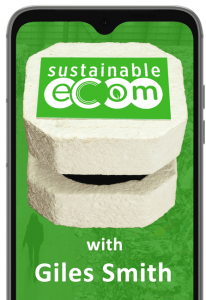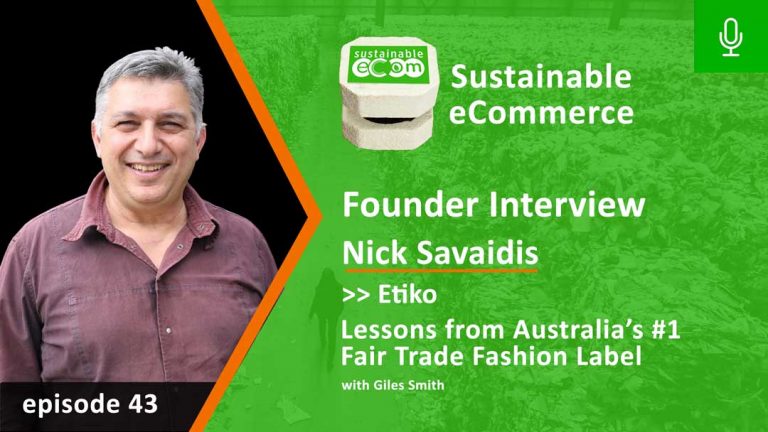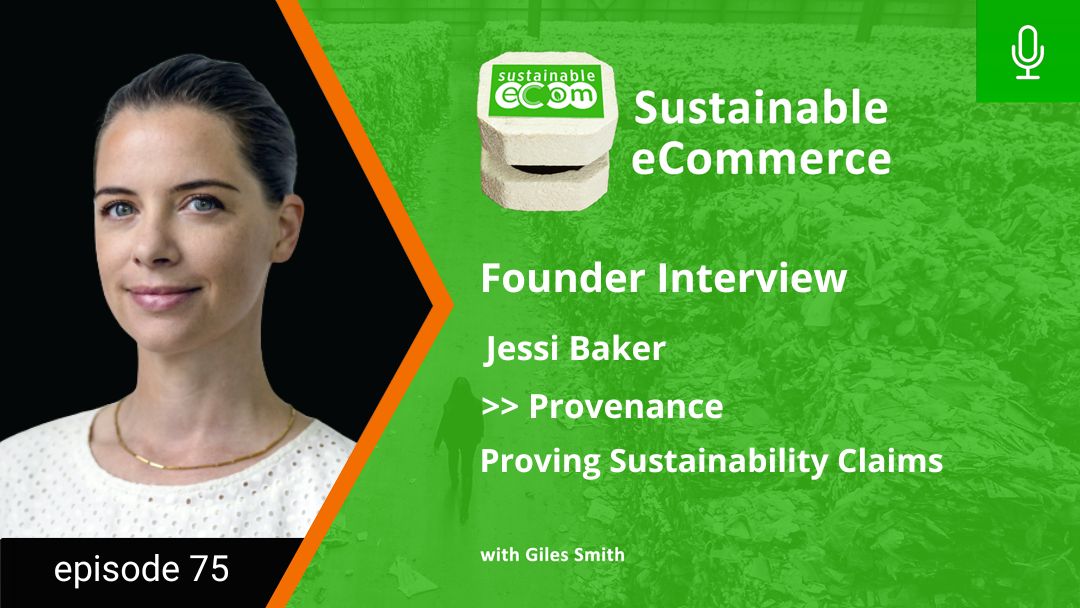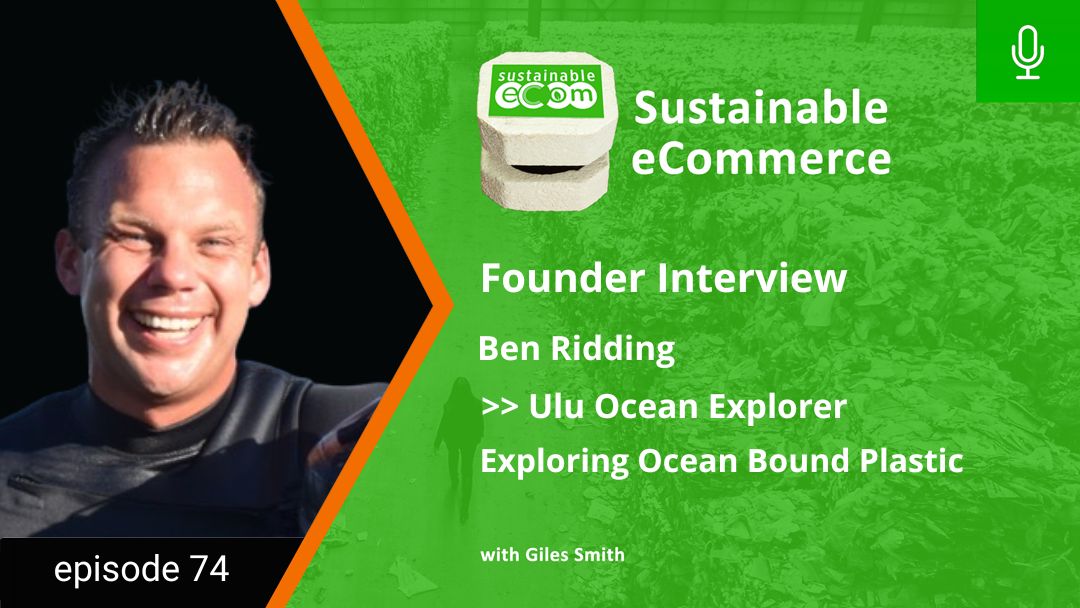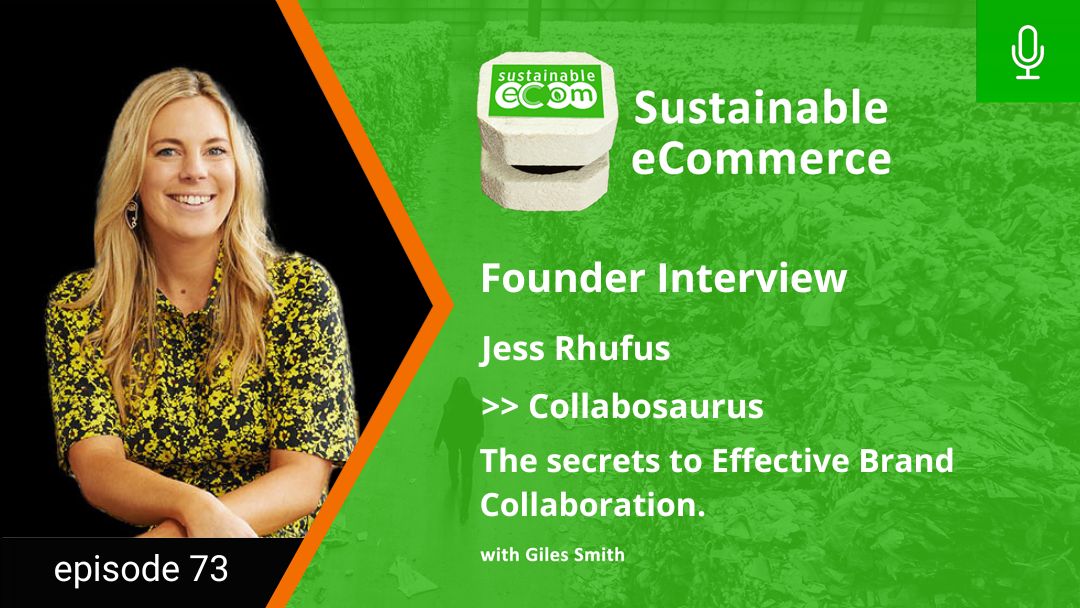Welcome to Episode 43 of Sustainable Ecommerce!
My guest this week is the Founder & CEO of one of Australia’s longest running ethical fashion brands, Nick Savaidis from Etiko. Nick has been in the social enterprise for decades, since the early 1990’s.
That experience and dedication to ethical sourcing shows through in Etiko, who have been winning just about every award there is since 2005, taking out the Australian Ethical Fashion Report top spot every year since it started in 2013. Interestingly, they chose to boycott that report in 2022 along with brands like Outland Denim, and we’ll explore why in the show.
In this episode, Nick explains the rich history leading up to founding Etiko in 2005, and we explore key things brands should think about regarding fair trade, as well as some interesting partners Etiko work with to power their take back schemes.
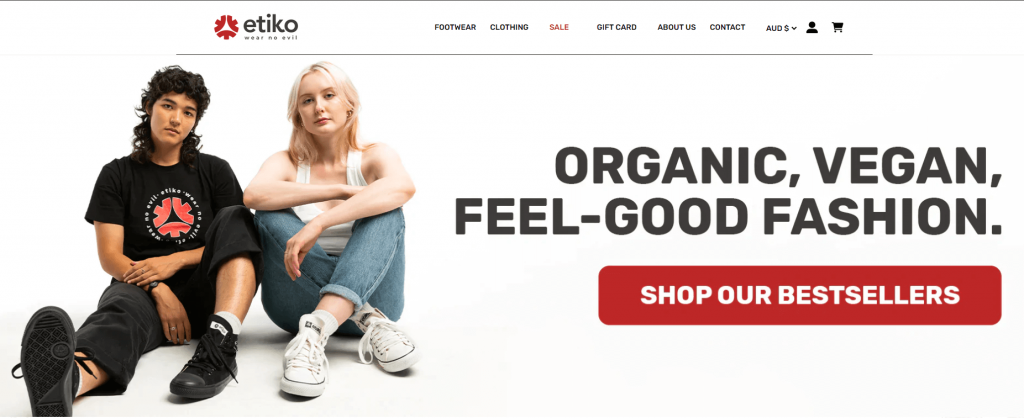
About Nick Savaidis
Despite operating Etiko for approaching 20 years, and winning the Australian Ethical Fashion Report every year since 2013, Nick started his career as a teacher. Growing up his mother worked in fashion, working long hours to make garments for mere pennies. That always struck Nick as unfair. After leaving University with his teaching qualification, he was sent in to develop literacy and numeracy programmes in Aboriginal communities, but quickly realised there simply wasn’t the job opportunities for that to be sought after. Instead, he spent the next few years there building social enterprises, including a T Shirt screen-printing business that sold into Oxfam.
On returning to Melbourne in the early 2004, he became the Australian distributor for ethical sneaker brand No Sweat, who were one of the first in the world to put a spotlight on child slavery practices used by some of the big brands. Eventually, Nick decided to make and market his own products under his own brand. With a Greek background, Nick settled on a contraction of the greek word for Ethical – and the business has been called Etiko since.
How has the Perception of Sustainability and Ethical supply changed since you started Etiko?
Awareness of the issues of ethical supply among both consumers and the industry is much higher now. Initially when we started most fashion labels flat out denied the existence of slave labour. The Rana Plaza tragedy, as sad as it was, was a major turning point in the perception of ethical supply, at least here in Australia.
Another important development was the initiation of the Australian Ethical Fashion Report in 2013. Etiko has consistently come top in the scoring of that report every year (score over 80% (A+) every year) since its inception. However, there report is not without its issues in how they assess and grade brands, and too many big brands were paying lip service to ethical supply and being graded highly, rather than making impactful changes. The authors of the report were concerned that if they were too hard on big brands, they would be reluctant to take part.
To draw attention to these issues, Etiko and a few other great brands like Outland Denim actually boycotted it in 2022. The good news is that changes have been made, and now the report exposes the actual score rather than a grading to improve the transparency, but more work still needs to be done.
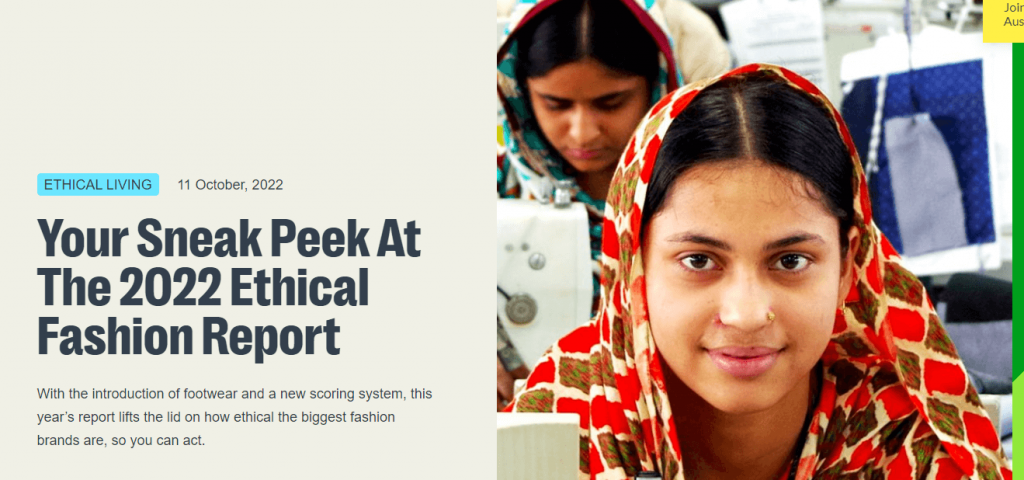
What should brands be doing to be genuinely ethically sourced?
Astonishingly, of the over 500 brands assessed in the report in 2021 – only 4 could actually prove they pay a living wage to their supplier’s employees. So, the first and most important point is to ensure you pay the workers a fair, living wage. Real action is required, not just commitments of future action.
What sort of level of transparency to consumers want in relation to ethics and sustainability?
While Etiko does go to considerable lengths to be transparent and prove what they’re doing {Ed – this is really important from an authenticity standpoint}, fundamentally consumers just want to know that when your brand states that products are ethically sourced and sustainable, they actually genuinely are. Basically, the best way to prove your claims is through top standard certifications.
Etiko considers Fair Trade certification to be the ‘gold standard’ for ethical supply, partly because it has very high benchmarks to earn it in the first place. But keeping the certification requires just as much, if not more commitment.
Moreover, Fair Trade stands apart from all other certification bodies in being the only one where the Board overseeing the process is staffed by the very people it seeks to protect – the farmers and workers. That means their interests are never manipulated to advantage unethical practices.
In addition to Fair Trade, B CORP and Social Traders are also top-quality certifications that require significant effort to achieve.
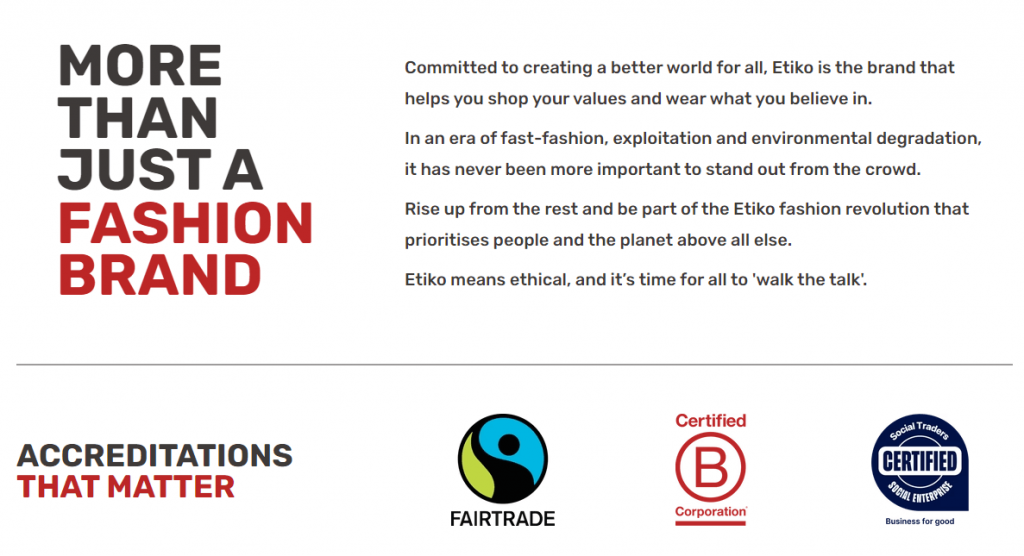
What are you doing in Etiko that is Sustainable and Regenerative?
With a view to having all their products able to be returned to earth aligned with Aboriginal practices Nick learned from his earlier career, Etiko is on a mission to remove plastic from their supply chain completely.
Aside from compostable packaging including FSC card stock, they are best known for their sneakers, which are natural latex & cotton. All of that can be composted & the organic matter used to enrich soil.

Can you explain the Etiko Take Back Programme
Etiko have been partnering with an organisation called Save Our Soles to recycle used Etiko footwear. The idea is to keep as many of their products as possible out of the waste system. Save Or Soles are able to recycle the latex and other parts from Etiko’s footwear to make things like play mats for parks, rather than have all that material go into landfill.
They have also been working with BlockTexx in QLD to reprocess the fabrics from used garments. Etiko collect up post-consumer clothing, dead stock and damaged items and send to BlockTexx , where it is processed down, and turned into cellulose powder, from which new yard can be spun.
If you’re looking for a take back partner, these two organisations would be a great place to start!
What other Impact Initiatives are you running?
They are also working with an organisation in India called Plastic for Change. Every purchase of their ‘Less Plastic More Love’ T shirts finances the collection of 10 KG of plastic, which is then processed and used as recycled resin stock in the supply chain to make Garnier shampoo bottles.
Etiko are also the first organisation in Australia to use Tip Me, a German plug in that allows customers to send tips and gratuities directly through to the people who make the items they buy. That facility is coming online fully this year – just another way Etiko are laser focussed on ensuring a living wage.

What New Product Development is Underway?
Currently Etiko are developing a vegan leather shoe product that is truly free of petroleum-based plastics. Most vegan leathers, including things like pineapple, cactus and mushroom leather still have a significant proportion of PU and other stabilisers and binders inside. That means they are often not as environmentally friendly as we might think, and can’t be considered fully compostable.
What’s next for Etiko in 2023
Aside from the vegan leather shoe, they are looking to finally scale up this year after a tricky post-pandemic transition. With more and more orders coming from the US market they are looking for ways to develop supply and fulfilment from there and will be seeking equity crowdfunding to achieve that.
To explore Etiko’s ethical range of apparel and footwear head over to etiko.com.au
Top Takeouts
Etiko do a great job of transparently communicating their sourcing, and have heap of information about that on their site for whoever wants it. But Nick’s fundamental view about what customers want to know is simple.
They just want to be able to validate that if you say your product is ethically sourced and sustainable, it really is. Any number of words can be invented to talk to that point, but at the end of the day, it’s third-party certifications that provide the kind of reassurance customers are after.
I guess we intuitively know though, that not all accreditations are made equal. Nick’s view is you should seek out the gold standard ones, the ones that are very hard to get, and just as hard to keep, as they tend to stand the test of time.
He brought up Fair Trade specifically, which is actually run by the people it seeks to protect. At the end of the day, there is no such thing as perfect, and while you can’t hope to get everything right, you can prove significant effort getting and retaining certification, and showing that to your customers.
As we’ve been building out our Sustainable Brand Marketing index over the past few months, I’ve been very surprised by the number of brands who have taken the great steps to getting certifications, only to have them hidden away in an about us or sustainability page, and not present them to the customer in the path to purchase.
Make sure you’re displaying them prominently on your home page and in your product pages. As Nick points out for example, sadly very few fashion companies in Australia are certified Fair Trade, so literally if you’ve got it, flaunt it! It will help you stand out and help your customers how you stand apart from everyone else.
And lastly it was interesting talking to Nick about their take-back and recycling programmes. As we’ve talked about a little bit already in this series, end of life product stewardship is gaining momentum.
5 or 6 years ago, there really wasn’t the infrastructure in Australia to help with this, but Nick mentioned several partners that can help, including Save Our Soles for footwear, Blocktexx and Second Stitch, and of course there are other terrific resources like Upparal and Terracycle.
These days it is pretty straightforward to set up a take back scheme, the hard part is communicating it and encouraging customers to actually take action, but that’s the topic of a whole different show.





